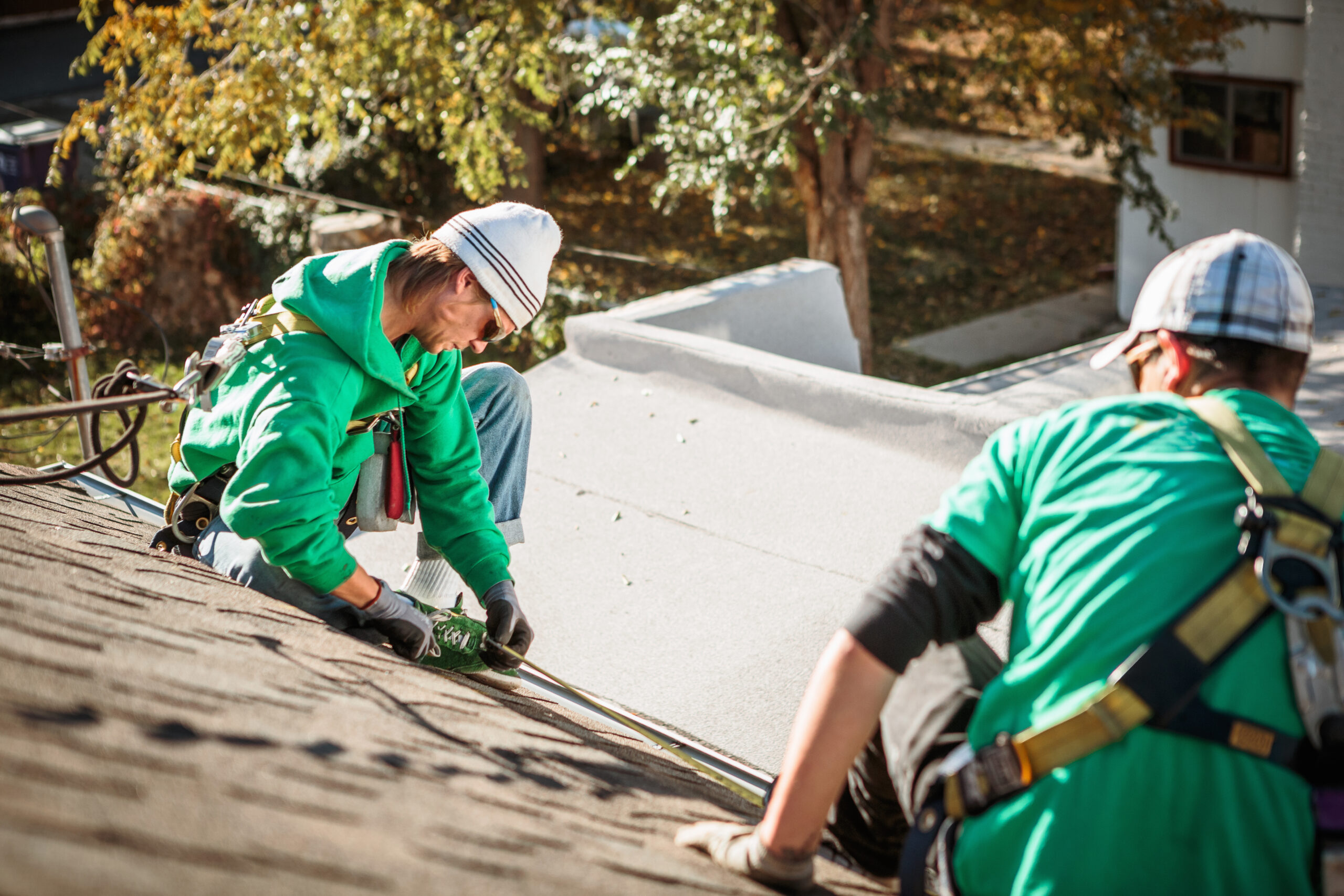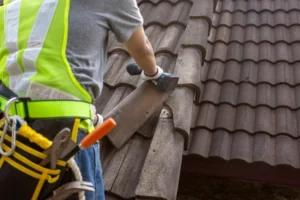Title: Navigating Roofing Material Warranties: Essential Insights When it comes to protecting your home, understanding the nuances of roofing material warranties is as crucial as the quality of the materials themselves. This article will demystify the complexities of roofing warranties, focusing on the distinctions between manufacturer and contractor warranties, and the pivotal terms you should be aware of. We’ll also delve into how the caliber of installation impacts your warranty and provide practical advice for maintaining your roof to uphold the warranty’s validity. If you’re grappling with the intricacies of roofing warranties, the insights here will equip you with the knowledge to make informed decisions, ensuring your investment is safeguarded.
Understanding the Basics of Roofing Warranties
As we delve into the realm of roofing warranties, it’s crucial to understand the various types available and how they safeguard your investment. In the following sections, I’ll guide you through the different warranties you might encounter and explain their significance in protecting the longevity and integrity of your roof. This knowledge is vital in ensuring that you’re well-informed and can make decisions with confidence when it comes to your home’s roofing needs.
Explore Different Types of Roofing Warranties Available
In my experience, homeowners often find peace of mind in understanding the warranties that come with their roofing materials. There are primarily two types: manufacturer’s warranties, which cover defects in the roofing material, and workmanship warranties, which are provided by the roofing contractor to cover installation. It’s essential to grasp the nuances of each to ensure your roof is protected against unforeseen issues, thus securing your investment and providing you with long-term value and assurance.
Learn How Roofing Warranties Protect Your Investment
Roofing warranties stand as a shield for your home, offering protection against potential defects and ensuring the longevity of your investment. I’ve seen firsthand how a comprehensive warranty can alleviate the financial strain of unexpected repairs, providing homeowners with a sense of security. These warranties, when leveraged correctly, can significantly mitigate the risks associated with roofing materials and installation, ensuring that your home remains safe and well-maintained under a reliable roof.
Comparing Manufacturer and Contractor Warranties
Understanding the distinction between manufacturer and contractor warranties is key to ensuring your roof’s longevity. Manufacturer warranties typically cover the roofing material itself, guarding against defects, while contractor warranties focus on the quality of installation. In my professional experience, knowing the coverage each warranty provides is crucial for homeowners to navigate potential issues confidently. Up next, I’ll delve into the specifics of what these warranties entail, offering valuable insights into their practical applications.
Distinguish Between Manufacturer and Contractor Warranties
In my professional journey, I’ve learned that distinguishing between manufacturer and contractor warranties is crucial for homeowners. Manufacturer warranties typically cover the roofing material against defects, ensuring that the shingles or tiles you’ve chosen meet quality standards. On the other hand, contractor warranties are promises of the quality of the installation work itself. As a homeowner, understanding these differences is key to ensuring that both the materials and the workmanship on your roof are secure, providing you with a comprehensive layer of protection for your investment.
Identify Coverage Provided by Each Warranty Type
In my professional capacity, I’ve observed that manufacturer warranties typically cover the roofing materials against manufacturing defects, ensuring that the products you select for your home are of the highest standard. Contractor warranties, however, guarantee the quality of the installation process. As a homeowner, recognizing the coverage each warranty provides is essential; it’s the difference between replacing faulty materials at no cost and having peace of mind that any issues arising from the installation will be promptly and effectively addressed without additional expense.
Key Terms to Look for in Roofing Material Warranties
As we navigate the intricacies of roofing material warranties, it’s imperative to scrutinize key terms that define their scope. I’ll help you examine the duration and limitations of warranties, ensuring you’re aware of the time frame and extent of coverage. Additionally, understanding the exclusions listed in warranty terms is crucial, as it clarifies what is not covered. These insights will empower you to make informed decisions about your roofing materials and their warranties.
Examine Warranty Duration and Limitations Carefully
In my professional experience, I’ve learned that scrutinizing the duration and limitations of roofing material warranties is a critical step for homeowners. These warranties vary, often ranging from 20 years to a lifetime, but it’s the fine print that can make a significant difference. Limitations can include factors such as proper installation and regular maintenance, and failing to adhere to these can void the warranty. I advise clients to review these terms meticulously to ensure they fully understand the extent of their coverage and avoid any surprises down the line.
Understand Exclusions Listed in Warranty Terms
In my professional dealings, I’ve come to realize the importance of understanding warranty exclusions, which are often overlooked yet critical aspects of roofing material warranties. These exclusions detail the circumstances under which the warranty may not apply, such as damage from natural disasters, improper installation, or lack of maintenance. I guide my clients to read these terms carefully, ensuring they are aware of their responsibilities and the actions that could potentially void their coverage, thus maintaining the integrity of their roofing investment.
How Installation Quality Affects Your Roofing Warranty
Recognizing the importance of professional installation is paramount when it comes to roofing warranties. As a seasoned expert in the field, I’ve seen how improper installation can lead to voided warranties, leaving homeowners unprotected. The following sections will delve into the critical role that quality installation plays in maintaining your warranty’s validity and the potential pitfalls of overlooking this aspect. It’s my goal to equip you with the knowledge to ensure your roofing warranty remains intact and effective.
Recognize Importance of Professional Installation
In my professional practice, I’ve witnessed the critical role that expert installation plays in the longevity and effectiveness of roofing warranties. A roof installed by skilled professionals ensures that the warranty covering your roofing materials remains valid, as improper installation can lead to premature wear and potential voiding of the warranty. I emphasize to my clients the importance of choosing a reputable contractor, like us at Kempthorne Roofing & Construction, who adheres to the highest standards, thereby safeguarding their investment and ensuring that their roofing warranty provides the protection they expect and deserve.
Avoid Voids in Warranty Due to Improper Installation
In my professional experience, I cannot stress enough the importance of avoiding warranty voids that stem from improper installation. A roof that is not installed according to the manufacturer’s specifications not only risks exposure to the elements but also jeopardizes the validity of your warranty. I’ve seen too many homeowners face unexpected costs due to this oversight. It’s imperative to work with a trusted contractor who ensures every aspect of the installation process aligns with the warranty requirements, thereby securing both the durability of your roof and the validity of your warranty coverage.
Tips for Maintaining Your Roof to Protect Your Warranty
Maintaining the integrity of your roof is pivotal for upholding its warranty. I’ll share insights on the necessity of regular roof inspections and the importance of consistent maintenance to prevent warranty issues. Additionally, keeping a detailed record of maintenance activities is crucial for successful warranty claims. These practices are not only preventative measures but also serve as documentation that can be indispensable when it’s time to demonstrate adherence to warranty stipulations.
Perform Regular Roof Inspections and Maintenance
In my professional practice, I’ve observed that regular roof inspections and maintenance are fundamental to preserving the terms of your roofing warranty. A thorough inspection by a qualified professional can identify minor issues before they escalate, ensuring your roof’s longevity and compliance with warranty requirements. I advise clients to schedule these inspections at least twice a year and after major weather events, as this proactive approach can prevent costly repairs and maintain the integrity of their warranty coverage.
Document Maintenance Activities for Warranty Claims
In my professional experience, I’ve found that meticulously documenting all maintenance activities is a critical step in upholding your roofing warranty. Keeping a detailed log of inspections, repairs, and routine upkeep serves as a robust record that can be indispensable when filing warranty claims. This practice not only demonstrates your commitment to maintaining the roof’s condition but also ensures a smoother process should you need to assert your warranty rights. It’s a straightforward yet powerful way to protect your investment and guarantee that your roof remains a reliable safeguard for your home.
Steps to Take When Filing a Roofing Warranty Claim
When the time comes to file a roofing warranty claim, being prepared is key. I’ll guide you through gathering the necessary documentation, a step that is often critical in substantiating your claim. Prompt communication with your warranty provider is equally important for a smooth resolution. These topics are essential for homeowners to navigate the claims process effectively, ensuring the protection of their roofing investment.
Gather Necessary Documentation for Your Claim
When I advise clients on filing a roofing warranty claim, I emphasize the importance of gathering all pertinent documentation. This includes a copy of the original warranty, detailed records of maintenance, and evidence of the defect or issue. Having these documents organized and readily available can expedite the claims process and enhance the likelihood of a favorable outcome. It’s a step that demonstrates your diligence and helps substantiate your claim, ensuring your roofing investment is protected.
Contact Warranty Provider Promptly for Assistance
When I encounter the need to file a roofing warranty claim, I reach out to the warranty provider without delay. Prompt communication is crucial, as it allows for the swift resolution of any issues and ensures that your concerns are addressed in a timely manner. In my professional experience, this immediate action not only demonstrates your proactive approach but also helps to expedite the claims process, making it smoother and more efficient for all parties involved.
Frequently Asked Questions
What are the core elements of a roofing warranty?
A roofing warranty typically encompasses material defects, workmanship quality, and coverage duration, ensuring homeowners receive reliable protection for their investment.
How do manufacturer and contractor warranties differ?
Manufacturer warranties typically cover defects in roofing materials, while contractor warranties are for workmanship and installation quality. Both are crucial for long-term roof protection.
Which terms in roofing warranties should I pay attention to?
When reviewing roofing warranties, focus on coverage limits, material and labor inclusion, transferability, and proration terms to ensure comprehensive protection for your investment.
Can installation quality invalidate my roofing warranty?
Indeed, poor installation quality can void your roofing warranty, as manufacturers require professional adherence to specific guidelines for validity.
What steps should I follow to file a roofing warranty claim?
To file a roofing warranty claim, promptly contact your roofing contractor, provide documentation of the issue, and follow their specific claim process for assessment and resolution.
Conclusion
Understanding roofing material warranties is crucial for safeguarding your home and investment. Differentiating between manufacturer and contractor warranties ensures comprehensive protection for both materials and workmanship. Regular roof inspections and maintenance, along with meticulous documentation, are key to maintaining warranty validity and facilitating successful claims. Ultimately, being well-informed about your roofing warranty empowers you to make confident decisions and secure the longevity of your roof.








